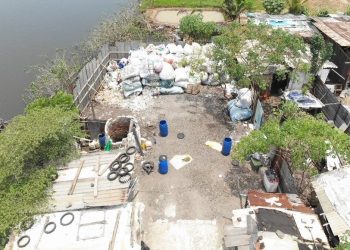Jakarta, Indonesia Sentinel — Indonesia’s Ministry of Health (Kemenkes) will roll out free health screenings across 200,000 schools beginning in July 2025, part of a nationwide effort to improve public health starting from a young age. The program will be conducted annually at the start of each academic year.
Health Minister Budi Gunadi Sadikin said the initiative is part of a broader campaign aimed at reaching up to 280 million people across the country. As of May 10, 2025, more than 5 million individuals have already participated in the free health checks.
“As of May 10, we’ve surpassed 5 million participants, and we’re currently reaching 180,000 people per day. As of yesterday, that number had climbed to 5.8 million,” Budi said during a public health forum titled Double Check: What’s the Vision for Healthcare in the Prabowo Era? held at Teater Heraty Museum in Central Jakarta on Saturday.
“I’m still short of the target, which is why starting in July, we’ll launch school-based health screenings. We’re targeting 200,000 schools. Going forward, we want to make health checks part of the school routine every academic year,” he added.
According to Budi, this health check initiative is one of the largest ever undertaken by the Indonesian government. By comparison, the country’s stunting reduction program only targets about 25 million children under five, while the Free Nutritious Meals (MBG) program aims to serve around 82.9 million beneficiaries.
“This is the largest government health program in terms of scale, targeting 280 million people. Not many programs reach that far. Stunting covers about 25 million children. Vaccinations reach about 70 million children. I think the nutritious meals program will cover around 82.9 million,” Budi explained.
Read Also:
In addition to the nationwide free health screenings, the Ministry of Health also plans to upgrade hospitals in 66 remote districts and cities across the archipelago. The goal is to ensure that even residents in far-flung areas have access to treatment for serious conditions such as heart disease, stroke, and cancer.
“We’re upgrading hospitals in 66 remote districts. These are currently classified as Type D hospitals. We’re moving them to Type C status,” Budi said. “In simple terms, it means if someone suffers a stroke, heart attack, or cancer, the hospital will be equipped to treat them right there, no need to travel to a big city.”
(Raidi/Agung)


























